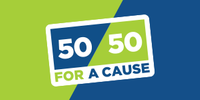Medical first responders are a big part of the EMS system.
Krista Remeshylo who is the director of EMS central and also the director of the provincial medical first responder program said that the medical first responder classes are 44 hours in length and are typically done over two weekends.
During the courses people learn how to:
Asses and secure an emergency scene
How to administer oxygen
How to give airway intrusions
Obtain and understand vital signs like blood pressure and heart rate
Perform CPR
Perform patient secondary assessment
How to fix soft tissue and muscle injuries
How to deal with heat and cold emergencies
How to help burns
Apply spine boards
Appy splints
Appy cervical collars
How to safely lift and move patients
How to give emergency childbirth
And how to help EMS before they arrive on the scene
"There is a process within the health authority. Each individual regional health authority follows its own process. We are in the beginning stages of making a provincial process. When somebody wants to become a medical first responder and respond on behalf of the Saskatchewan health authority they must be approved in the course and then they must register as a medical first responder with the administrator of health. Any public member can do the course but in order to respond on behalf of the Saskatchewan health authority, you have to sign a confidential agreement and apply to be one and then they will do a reference check like a criminal record check."
Every day workers can be a medical first responder.
"They are farmers, business owners, health care workers, oil field workers, industry workers, or homemakers. They get to provide emergency response and assessment to people in their areas that are injured or ill until the ambulance arrives. Right now we have just over 1300 medical first responders in 280 communities. We do have areas where there is less coverage than others and that's where we target for additional training opportunities."
If you want to become a medical first responder you can contact your local emergency medical services and ask them how to apply.
"They provide great care and rural areas need additional support because it can take a while for the ambulance to arrive."













